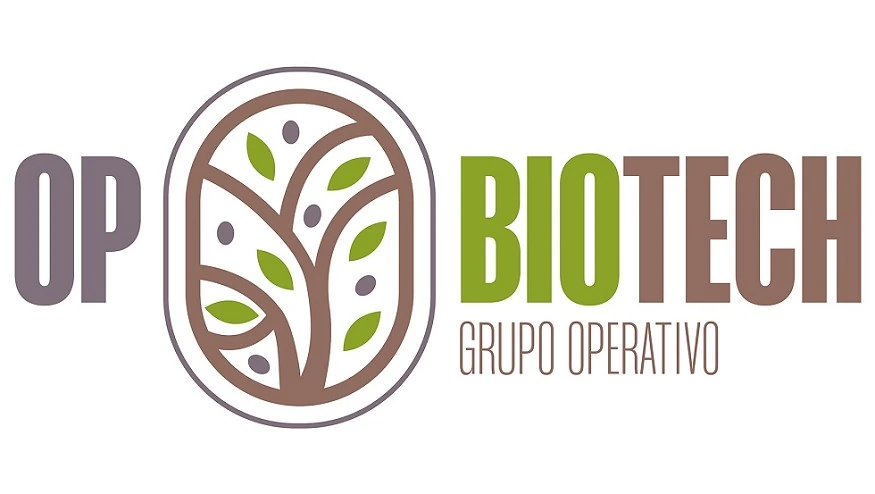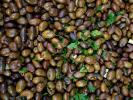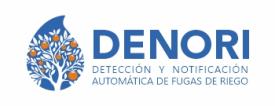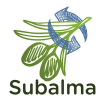
OP-BIOTECH Operational Group: New biotechnological tools in olive and pistachio cultivation to address abiotic stress situations caused by drought or water deficit
- Type Operational group
- Status In progress
- Execution 2024 -2027
- Assigned Budget 575.647,64 €
- Scope Supraautonómico
- Autonomous community Andalucía
- Main source of financing CAP 2023-2027
- Project website GO OP-BIOTECH
The project follows a logical and coherent sequence with precise deadlines and specific tasks for each participant, as shown in the detailed timeline. The objectives and activities are linked in a sequential manner, forming a necessary process for developing and applying biotechnological treatments in agriculture. Each step is essential to advance to the next and achieve the desired results in terms of improved production and plant resistance to adverse conditions.
The project begins with the creation of an innovative biotechnological treatment to address water stress in olive and pistachio trees. Once the treatment has been identified and developed, sufficient availability is ensured for field testing and to validate its effectiveness in real conditions. To make the treatment practical in the agricultural environment, it is formulated in specific products, such as AquaBac products, easily applicable in the field, guaranteeing its viability and effectiveness in real situations.
Once AquaBac products are ready and applied in the field, it becomes crucial to measure their real impact on crop production and quality, justifying the investment made in their development and production.
With the demonstrated success in this objective, progress is being made towards preparing for larger-scale production, which involves defining efficient processes and procedures to ensure the continuous availability of the developed products.
Finally, the importance of long-term evaluation is recognized to ensure that positive results endure and improve over time. Furthermore, continuous innovation is sought to address changing climate challenges, underlining the need to identify and define new biotechnological solutions. This sequential and coherent approach results in a comprehensive process that culminates in the successful implementation of biotechnological treatments in agriculture.
Production of a consortium of bacteria active in water stress. Design and production of two AquaBac products: foliar and soil application, for trials. Evaluation of olive grove production and quality after one year of biotreatments for the project. Evaluation of fruit production and quality, including percentages of open fruit, size, color, and absence of fungal spots, after one year of bioproducts. Definition of production procedures and processes. Production at a pre-industrial scale. Evaluation of olive grove production and quality after three years of biotreatments. Definition of new biotechnological solutions for adverse climatic conditions. Evaluation of fruit production and quality, including percentages of open fruit, size, color, and absence of fungal spots, after one year of bioproducts. Analysis of data obtained over three years. Decision-making to address current and future climate challenges, with experience in biotechnological microorganisms.
- Activity 1. Design and formulation of a range of biotechnological products to address water stress situations: drought, water deficit. Activity.
- 2. Application of new biotechnological agronomic treatments designed within the framework of this project in rainfed and deficit-irrigated olive groves and study of their effects one year after application.
- Activity 3. Application of new biotechnological agronomic treatments and study of their effects, in their different forms of application, using RPA´S and conventional techniques.
- Activity 4. Pilot scaling process at pre-industrial level.
- Activity 5. Re-application of biotreatments in different olive grove plots and study of the effect caused in them two and three years after the first application and evaluation of the results obtained in all the studies carried out during the project.
- Activity 6. Re-application of biotreatments in different pistachio plantations and study of the effect on the physiological and productive response after two and three years of the first application.
The project addresses the challenge of water stress in olive and pistachio crops by developing an innovative biotechnological treatment to mitigate the effects of drought and water deficit. Water scarcity can have devastating impacts, threatening farmers' sustainability and profitability. Growing pistachios and olives under rainfed conditions presents agronomic challenges that must be effectively addressed. These crops, prized for their high-quality fruits and essential oils, are vulnerable to fluctuations in water availability, highlighting the importance of proper management of this resource.
Water scarcity can be due to climate variability, periodic droughts, and competition with other sectors. Farmers face the dilemma of maintaining crop productivity and quality while effectively managing water. Water management and optimization strategies, such as efficient irrigation systems and the selection of resistant varieties, are critical. This project proposes to go further by using microorganisms that act on plant metabolism, promoting greater nutrient uptake and tolerance to abiotic stress.
Green Universe, a participant in this project, has several bacteria whose genomes and functions in plant interactions are known. The project's central strategy involves applying advanced biotechnological tools to develop a treatment that strengthens the resistance of olive and pistachio trees to water stress. This approach is proposed as a sustainable and effective alternative to address climate challenges. The project represents a challenge for all participants, encompassing several critical stages. Initially, a consortium of bacteria highly effective in improving plant resistance to water stress is identified and selected.
Once identified, the treatment is developed, formulated for foliar and soil applications, maximizing its effectiveness. Proof of concept is conducted in field trials, seeking to ensure that the treatment is viable and effective under real-world conditions. Evaluation of crop production and quality after application is crucial, supporting the investment in treatment development.
- The project seeks to develop new biotechnological tools for olive and pistachio crops, addressing abiotic stress caused by drought and water shortages, among others. Abiotic stress negatively affects the productivity and survival of these crops.
- Dominant factors include drought, extreme temperatures, salinity, soil acidity, intense light, anaerobiosis and lack of nutrients.
- The project takes an innovative approach to improving the resilience and sustainability of these crops using advanced biotechnology.
- Selection and production of the necessary quantities of a consortium of bacteria with activity in situations of water stress and final design of 3 formulated products (AquaBac Line).
- Production of the quantities necessary for the continuation of trials Differentiation of production and quality of the olive harvest after one year of application of new biotreatments designed within the framework of this project.
- Differentiation of fruit production and quality, obtaining data on percentages of open fruit, size increase, color, and absence of fungal spots, after one year of applying the new biotechnological products.
- Definition of production procedures and processes.
- Pre-industrial scale production.
- Differentiation of olive crop production and quality after three years of biotreatments developed in the project, and definition of new biotechnological solutions to address current adverse climatic conditions.
- Differentiation of fruit production and quality, obtaining data and results on percentages of open fruit and size increases, as well as their color and absence of fungal stains, after a one-year application of the newly developed biotechnological products.
- Analysis of the data obtained during the three years of implementation of the project course.
- Coordinator/entity name: CITOLIVA FOUNDATION
- Postal address: Sierra Morena Street, CTSA Building, Geolit Park, Mengibar (Jaen). Postal Code: 23620
- Coordinator/entity email: CCAPISCO@CITOLIVA.ES
- Telephone: 953221130
- FUNDACIÓN CITOLIVA
- FUNDACIÓN CITOLIVA
- AGROPTIMUM DESARROLLOS GLOBALES SLU
- OLEOESTEPA SOCIEDAD COOPERATIVA ANDALUZA
- GREEN UNIVERSE AGRICULTURE S.L.







